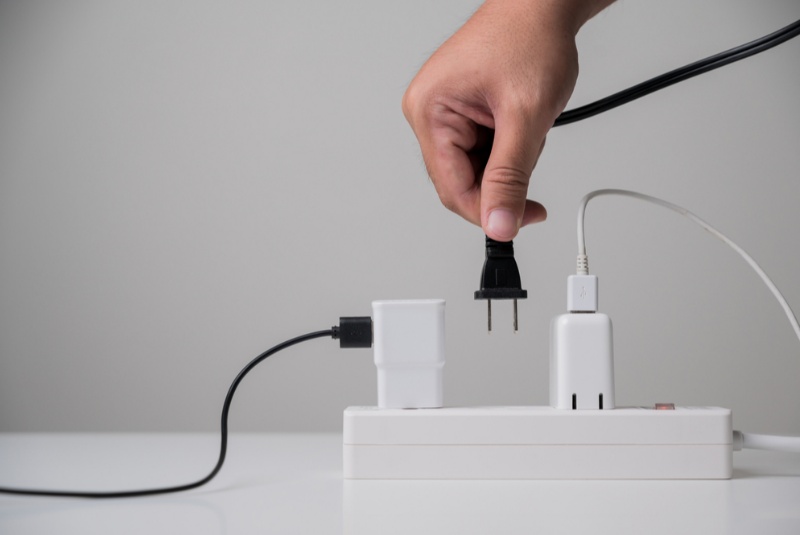While technology has indisputably revolutionized our world, it's crucial to recognize the environmental impact associated with the constant use of electronic devices. An often overlooked facet of energy conservation is the need to unplug electronic devices when they are not in use. By simply unplugging, we can make a significant difference in our energy consumption patterns, reduce our carbon footprint, and contribute to a more sustainable future.
So, why should we unplug our electronic devices when they aren't in use? One might assume that a device that's turned off doesn't consume energy. However, this is a common misconception. Many electronic devices continue to draw energy even when they are switched off, a phenomenon known as 'phantom' or 'vampire' energy draw. This energy consumption can account for up to 10% of a household's total energy use.
One of the most notorious culprits of phantom energy draw is the charger. Whether it's for your smartphone, laptop, or electric toothbrush, a charger left plugged into an outlet continues to use energy even when it's not charging a device. Other culprits include home appliances, entertainment systems, and office equipment, which are often left plugged in out of convenience.

Unplugging these devices when not in use may seem like a minor act, but it holds considerable environmental and financial implications. By reducing the amount of energy consumed, we indirectly lessen the demand for energy production, which often involves burning fossil fuels. Fossil fuels contribute significantly to global greenhouse gas emissions, leading to climate change. Thus, unplugging devices can help combat global warming.
Furthermore, unplugging electronic devices leads to financial savings. The phantom energy draw from unused devices translates to unnecessary expenses on your electricity bill. According to the U.S. Department of Energy, the average American household spends $100 annually on energy consumed by devices in standby mode or switched off. By unplugging, you can make a positive impact on your wallet.
Unplugging also prolongs the lifespan of your devices. Constantly being on, even in standby mode, can wear out your electronics faster. To ensure the longevity of these devices, it's beneficial to unplug them when not in use.
To streamline the process of unplugging, consider utilizing power strips. By plugging multiple devices into a power strip, you can disconnect numerous electronics with the flick of a switch. Smart power strips can detect when a device is in standby mode and cut power to save energy.
Moreover, it's essential to make smart choices when purchasing electronics. Opt for Energy Star certified products, which are designed to use less energy when in standby mode. Additionally, advancements in technology have led to more energy-efficient electronics that can reduce the overall power draw.
The simple act of unplugging electronic devices when they're not in use can significantly contribute to energy conservation, the reduction of greenhouse gas emissions, and the preservation of our planet. It's a small step in daily routine, yet it has a profound ripple effect on the environment and our wallets. Through conscious choices and a greater understanding of our electronics' power usage, we can embrace a more sustainable lifestyle.




